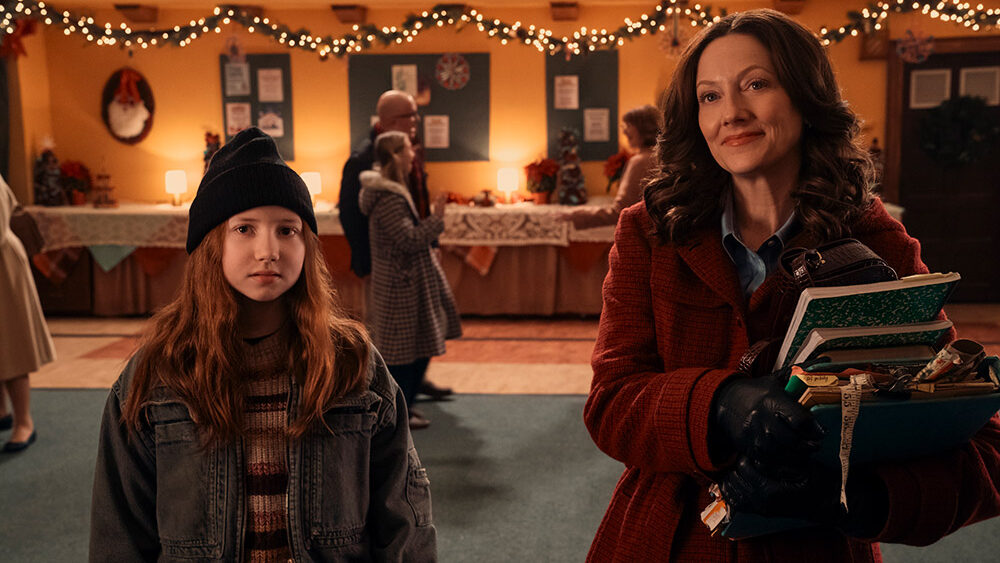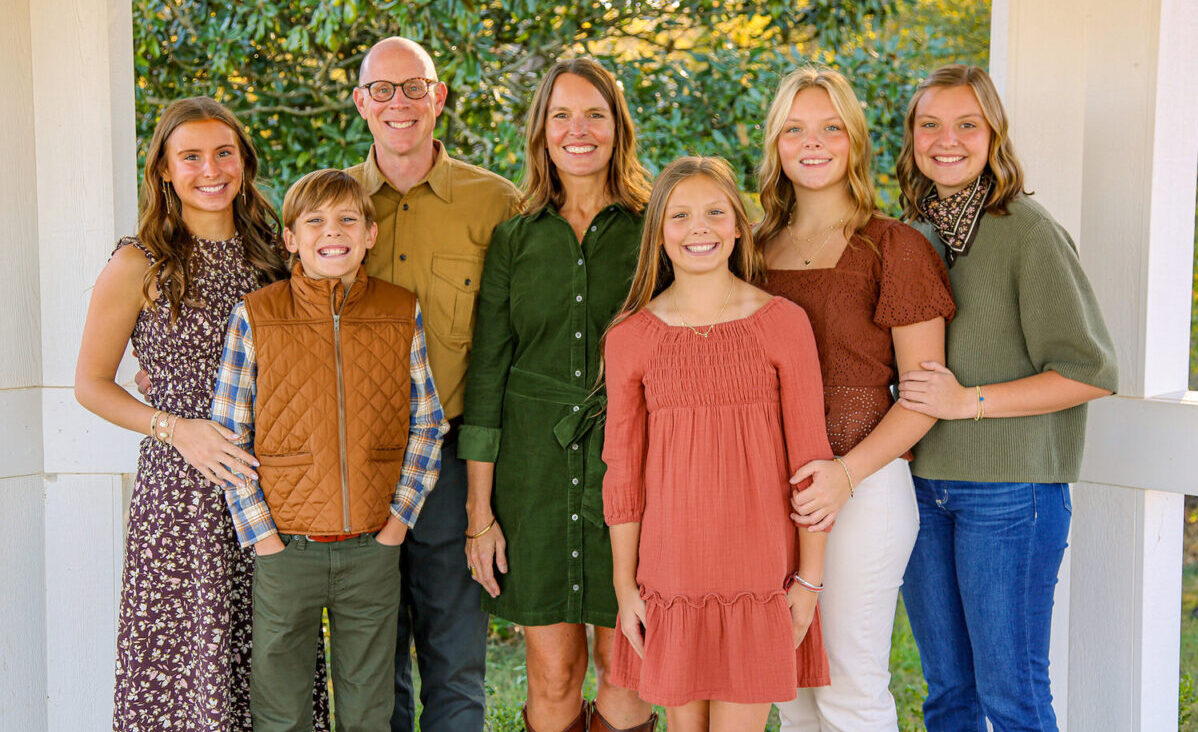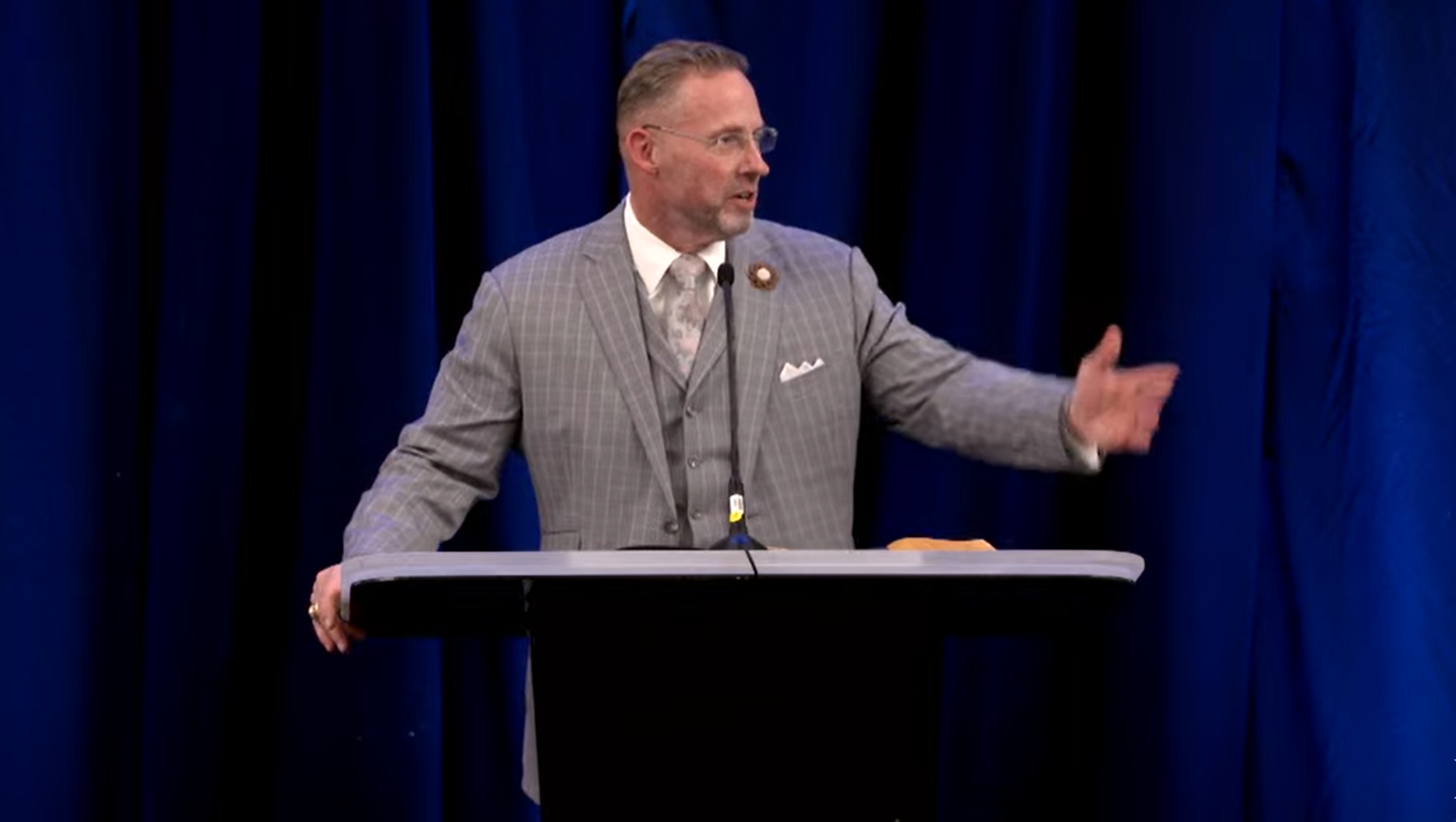Dallas Jenkins couldn’t have known who would win the presidential election just three days before his new movie was set to release. But what he did know was that his Christmas film based on a beloved children’s book would release into a politically charged environment.
“We live in very divided times. We’re in a very tribal election year, and so that’s on everybody’s mind. But something about Christmas has always united people,” said Jenkins in an interview a few weeks before Donald Trump was elected president for the second time.
“The Best Christmas Pageant Ever,” a new film from “The Chosen” director, opened Nov. 8 and aims to woo broad audiences with its cozy vibes and poignant-but-not-preachy Christmas message. Filmmakers said they hope the film draws both the faithful and faith-curious.
‘Meeting of giants’
It’s a tall order, even for Jenkins, whose runaway hit about the life of Jesus has appealed to evangelicals, Catholics and mainstream critics. Still, Jenkins, who has been pursuing the rights to “The Best Christmas Pageant Ever” for two decades, believes the tale of six irreverent kids hijacking a Christmas play might be just the story U.S. audiences are craving. And with the backing of Lionsgate, involvement of Christian media royalty Jon and Andrew Erwin and the star power of Lauren Graham (“Gilmore Girls”), Judy Greer (“27 Dresses”) and Pete Holmes (“Crashing”), filmmakers are eager for the faith flick to earn the status of Christmas classic.
The collaboration between Jenkins and the Erwin Brothers (“Jesus Revolution”) is “like a meeting of the giants” in the Christian film world, according to film critic Peter Chattaway. Andrew and Jon Erwin hit it big with their 2018 breakout film, “I Can Only Imagine,” an independent movie that grossed over $85 million worldwide. Following their success, the brothers created the film studio Kingdom Story Company and have signed a first-look deal with Lionsgate that gives the entertainment company dibs on buying or investing in everything the label creates. Last year, Kingdom Story Company’s “Jesus Revolution,” distributed by Lionsgate, earned more than $54 million worldwide, a hit in the post-COVID era but still behind the pre-pandemic success of other Christian films, according to Chattaway, who says the genre has been struggling to gain momentum since 2020.
Despite the lull, its creators believe “The Best Christmas Pageant Ever” has the potential of “cracking Christmas,” as Andy Erwin put it.
“Doing a film at the holidays, it can be kind of hard to kind of break through all the noise,” he said. “This is one that I think has the potential to really do it.”
The film is based on a 1972 novel by Barbara Robinson, which, since the 1980s, has been introduced to countless audiences as a play adaptation. It tells the story of the Herdmans, six impoverished, troublesome kids who smoke, steal and bully and have never heard the Christmas story. When they find themselves cast as the leads in the town’s Christmas pageant, they’re judged harshly by those wanting to preserve the play’s integrity — but the kids’ earnestness and vulnerability ultimately reminds churchgoers who Christ came to this world to serve.
It’s a fitting project for Jenkins, according to Chattaway, who said the director has previously gravitated toward stories that humanize biblical figures. He pointed to the director’s 2017 film “The Resurrection of Gavin Stone,” which depicts a washed-up child star who opts to play Jesus in a church’s passion play, and to “The Chosen” series, known for its emotive, charismatic depiction of Jesus.
“In one of the Christmas episodes (of “The Chosen”) is a close up of Joseph shoveling crap in the stable. And there are lines of dialogue about people relieving themselves, too,” he said. “It’s a recurring thing in ‘The Chosen,’ and part of the point is that it is to make everything seem more quote, unquote, relatable.”
Out of reach?
But English scholar and Christian film critic Kenneth Morefield, editor of “Faith and Spirituality in Masters of World Cinema (Volumes I, II, and III),” examined reviews of Robinson’s novel on Amazon and worries the irreverence of the story — plus the depiction of some Christians as pious and snobbish — might turn off Christian viewers.
“Many of the people who disliked the book intensely enough to leave a review on Amazon were all Christians who didn’t like it for a very specific reason, that they didn’t like the way that it portrayed their faith, or they didn’t like the way that their faith was portrayed in a world where someone occasionally said an R rated word,” he said.
Morefield also wondered if creating a crossover film, though a “noble endeavor,” is out of reach given the current political climate. With the rise of Christian nationalism, he suggested being Christian in America is more polarizing than it was 20-30 years ago.
“If you identify yourself, much less your film, as being Christian, there are going to be vast swaths of the population or the prospective audience who are going to say that’s not the thing for us,” he said. “We don’t seem to be at a point right now where we want to really have much curiosity about the lives of the other side of the spectrum. We want to villainize them, and we want movies that reinforce and tell us that our point of view is right.”
Erwin, who spoke to RNS before the election, is more optimistic. Given the success of the novel, he believes the film has the potential to be mainstream. And he sees the movie arriving at a “synergistic” time in the Christian film industry, where he believes Christian audiences have developed a wider, more refined palate in terms of media consumption while filmmakers themselves have been honing their craft. “The Best Christmas Pageant Ever,” said Erwin, features high-quality cinematography and a nostalgic aesthetic that’s “like if Wes Anderson were to create a Christmas card with Norman Rockwell.”
But it’s not just the visuals filmmakers hope will win over viewers — ultimately, it’s about the message.
“Yes, it’s a fun classic Christmas movie, but you’re going to also get a very strong retelling of the birth of Christ through the eyes of people who are on the outside,” said Jenkins. “And I think that’s a really important thing during these divided times, is that sometimes we look at the other, we look at those in poverty, we look at those on the outside as distant from us, and sometimes we even reject. So this is a love letter toward the beauty that comes from learning from each other and pointing each other toward the birth of Christ.”
EDITOR’S NOTE — This story was written by Kathryn Post and originally published by Religion News Service.










